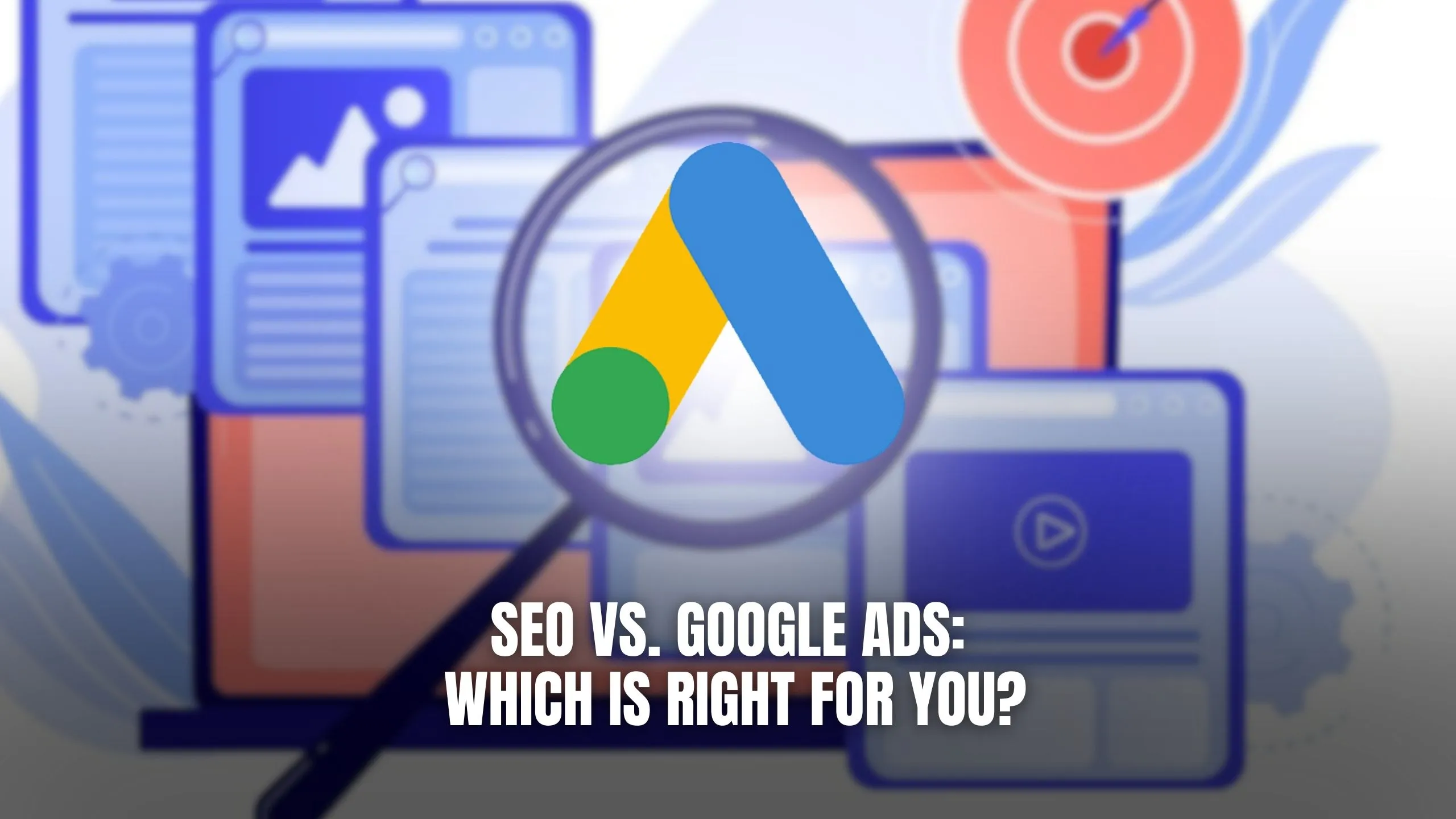SEO vs. Google Ads: Which is Right for You?
- Conversational Marketing Software SEO Software Affiliate Marketing Software Marketing Tools


SEO vs. Google Ads: Which is Right for You?
In the realm of digital marketing, businesses often face the dilemma of choosing between SEO (Search Engine Optimization) and Google Ads to enhance their online visibility and drive traffic to their websites. Both strategies offer unique advantages and cater to different needs. Let’s explore the key differences and considerations to help you determine which approach is right for you.
1. Organic vs. Paid Visibility
SEO focuses on optimizing your website’s content and structure to rank higher in organic search results. It involves strategies such as keyword research, content creation, on-page optimization, and link building. On the other hand, Google Ads (formerly known as Google AdWords) allows you to create and display ads on Google’s search engine results pages (SERPs) and other affiliated websites, instantly placing your business at the top of search results for specific keywords.
For businesses looking for long-term, sustainable visibility, investing in SEO can lead to consistent organic traffic and higher search engine rankings. Meanwhile, Google Ads can deliver immediate visibility and targeted traffic, making it ideal for short-term campaigns or promoting time-sensitive offers.
2. Cost Considerations
While both SEO and Google Ads require financial investment, they differ in cost structure and long-term implications. SEO typically involves upfront costs for website optimization, content creation, and ongoing efforts to maintain and improve rankings. However, once you achieve higher organic rankings, the ongoing costs tend to be lower compared to Google Ads.
On the other hand, Google Ads operates on a pay-per-click (PPC) model, where you pay each time a user clicks on your ad. The cost-per-click (CPC) varies depending on factors like keyword competitiveness and ad relevance. While Google Ads can provide immediate results, it requires continuous spending to maintain ad visibility.
3. Targeting and Flexibility
Google Ads offers advanced targeting options that allow you to reach specific audiences based on factors such as location, demographics, interests, and search behavior. This level of granularity enables you to tailor your ads to the preferences and behaviors of your target audience, maximizing the effectiveness of your campaigns.
In contrast, SEO provides less control over who sees your content, as organic search rankings are primarily influenced by factors like relevance, authority, and user experience. While you can optimize your content for specific keywords and topics, you have limited control over who visits your website.
4. Brand Awareness and Credibility
Investing in SEO can enhance your brand’s visibility and credibility over time, as higher organic rankings signal trustworthiness and authority to users. Appearing at the top of organic search results can also increase brand recognition and instill confidence in potential customers.
Google Ads, particularly through display advertising, can also contribute to brand awareness by showcasing your ads on relevant websites across the Google Display Network. This exposure can help you reach a broader audience and reinforce your brand message.
5. Conversion Potential and ROI
Both SEO and Google Ads have the potential to drive conversions and generate a positive return on investment (ROI). SEO leads tend to have higher conversion rates and lower acquisition costs over time, as they often represent users actively searching for information or solutions related to your business.
Google Ads, on the other hand, can deliver immediate results and capture users at different stages of the buying cycle. With proper optimization and targeting, Google Ads campaigns can yield a favorable ROI, particularly for businesses in competitive industries or those with specific promotional goals.
Recommended SaaS Products
- Ahrefs: A powerful SEO toolset for keyword research, backlink analysis, and competitor analysis, helping businesses improve their search engine rankings and organic traffic.
- SEMrush: An all-in-one marketing toolkit for SEO, PPC, content marketing, and social media management, providing valuable insights and competitive intelligence to optimize digital marketing campaigns.
- Google Analytics: A web analytics service offered by Google that tracks and reports website traffic, helping businesses understand user behavior, measure marketing effectiveness, and make data-driven decisions.
- Moz: A comprehensive SEO software suite that offers tools for keyword research, link building, site audits, and rank tracking, empowering businesses to improve their online visibility and drive organic traffic.
- SpyFu: A competitive intelligence tool for SEO and PPC, allowing businesses to spy on their competitors’ keywords, ad campaigns, and search rankings to gain insights and optimize their own strategies.
Conclusion
In conclusion, the decision between SEO and Google Ads depends on various factors, including your business goals, budget, timeline, and target audience. While SEO offers long-term benefits and sustainable visibility, Google Ads provides immediate results and precise targeting options. Ultimately, a combination of both strategies may offer the best results for maximizing your online presence and driving business growth.
Maximize Your Digital Marketing Strategy with Subscribed.fyi!
Ready to take your digital marketing strategy to the next level? Subscribed.fyi offers exclusive deals on essential SaaS tools for SEO, Google Ads management, and more. Sign up for free to unlock secret deals and access savings on tools that can optimize your online visibility and drive conversions. Stay ahead of the competition and achieve your marketing goals with Subscribed.fyi.
Relevant Links:








